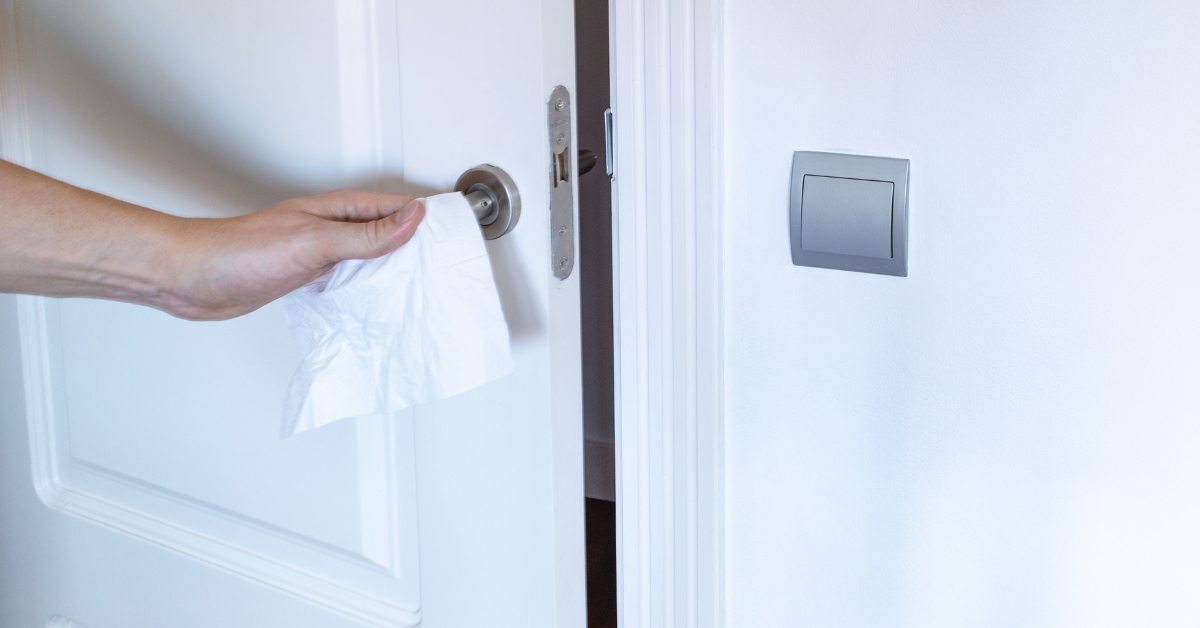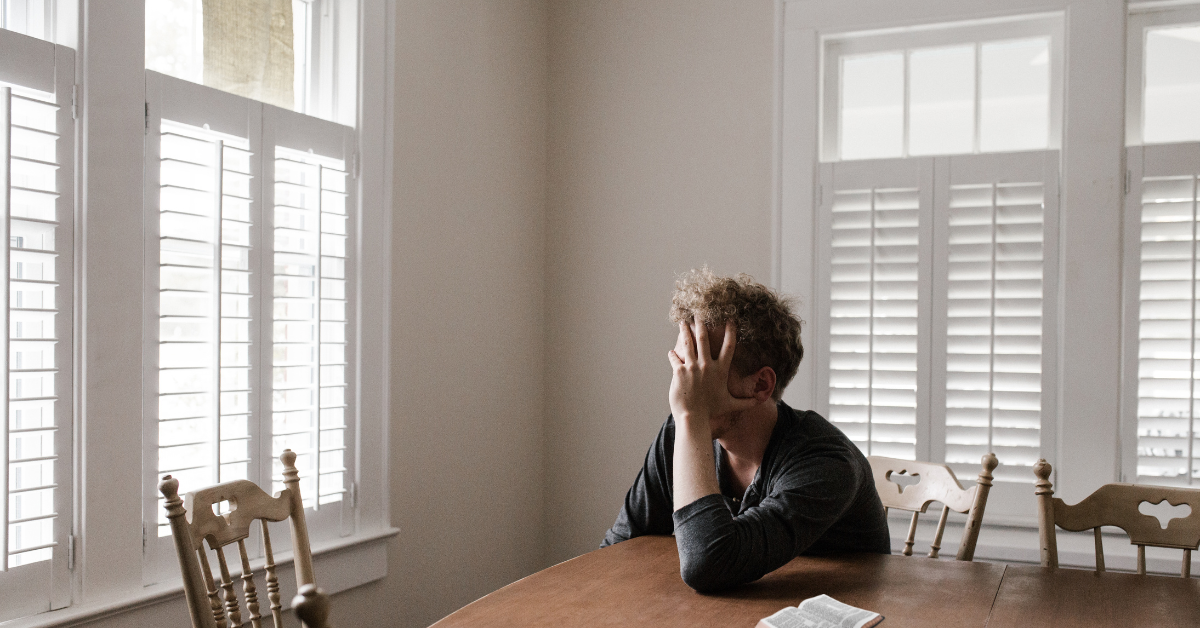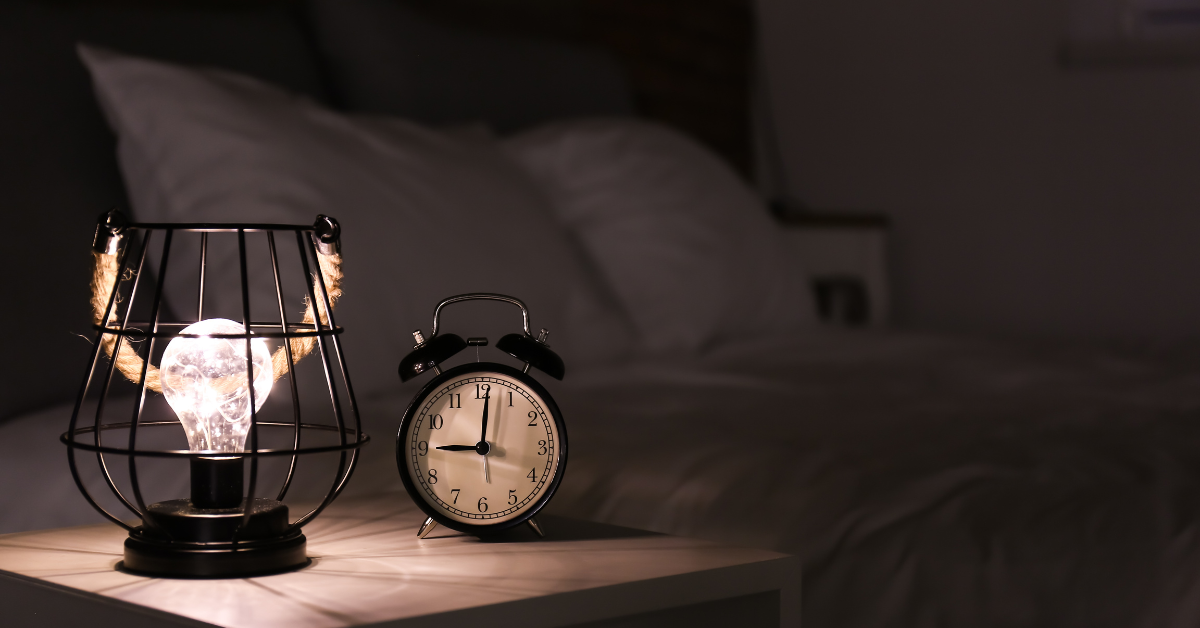Faith: Hello…
Carrie: That is my almost three year old debut on the podcast. She was in my recording space and wanted to know what’s that? And so I was showing her a few things on how the microphone works. It’s kind of cool to have my daughter on because today’s episode is for the parents out there. I know that we have a lot of people who listen to the show who are parents or a loved one of someone who has OCD. And it’s really great that you’re listening to the podcast in order to try to understand them better. As you know, I’ve been involved in the inference based cognitive behavioral therapy community for a little while now. And it was through that community that I found out about something called space for parents and I wanted to put this on the podcast for all of you parents who are struggling out there wondering, how do I best support my child or adolescent, maybe even young adult that’s living with me, who is struggling with OCD, what can I do to help them and kind of point them in the right direction?
The thing that I love about this treatment is that it doesn’t matter whether or not your child or adolescent is in therapy. There are still positive things that you can do as a parent to help nurture and support them towards a growth process. Stay tuned because I absolutely love how our guest Katie Wetzel really integrates this treatment with our faith.
Hello, and welcome to Christian Faith and OCD with Keri Bach. I’m a Christ follower, wife and mother, licensed professional counselor who helps Christians struggling with OCD get to a deeper level of healing. When I couldn’t find resources for my clients with OCD, God called me to bring this podcast to you.
With practical tools for developing greater peace, we’re here to bust through the shame and stigma surrounding struggling with OCD as a Christian, sharing hopeful stories of healing and helping you replace uncertainty with faith. I’m here to help you let go of the past and future to walk in the present abundant life God has for you. So let’s dive right into today’s episode.
Carrie: Katie, tell us a little bit about yourself and how you got into parent coaching.
Katie: I am first and foremost, a mom of four kids, so I am parenting a lot and actually benefited from a parent coach. Gosh, about 10 years ago and really helped us through a difficult season, particularly with my son, who ended up years later being diagnosed with OCD. He had a really rough time around six. We reached out for a parent coach and were really helped and then trade was a pediatric nurse Practitioner and was working as a nursing professor. Okay, then the pandemic hit and I had four kids virtual schooling. My youngest was starting kindergarten.
My oldest was starting high school. I was like, I can’t go back. My husband was a pharmacist, so he needed to be there full time. Anyway, then I basically retired from nursing. I still do a little bit, but. Then decided to get certified as a parent coach. And mainly because those last few years of nursing, I found like I was really gravitated towards parents and more passionate about parents and more able to see that I’ve always loved kids, but kids love their parents. And if I can love their parents, well, I can also love that kid well.
Carrie: I love that.
Katie: And so parent coaching was a natural next step for me to further dig in and support parents who are navigating hard things with their kids.
Carrie: Yeah. This is a side note, but I love stories about career shifts because I think a lot of times people think that they’re stuck and that they can’t do something else or that their skills aren’t going to translate somewhere else.
So that’s sounds like it’s worked out really well for you. So you talked about having your own son who struggles with OCD or was diagnosed at a younger age. Was that a shock for you? Was that overwhelming like all of a sudden I need this new set of skills because I’m having things that I haven’t seen with my other children before.
Katie: My older son had like general anxiety Definitely was like, okay when around 10 or so I was like, oh, this is not what I’m used to This is something different, but he never would go to therapy or anything So I’d learned a lot about how to help him through anxiety And then my second son, around six this time, he was really struggling, got diagnosed with Tourette’s syndrome.
And looking at Tourette’s, a lot of things, common comorbidities are ADHD and OCD. With his tics, I was always kind of curious, wait, is that a compulsion or is it a tic? It’s kind of confusing. So it was in the back of my mind and I had been watching like YouTube videos and learning Again, first anxiety because my older son, but then OCD with this question with my other child and it was when the pandemic hit, I knew he was doing some things in numbers.
Like he was like tapping and I was like, are you just tapping? Or is there a certain number? And he was like, oh, it’s a certain number. And our neurologist just called it OCD like behaviors. But didn’t actually do an evaluation and then in the pandemic, I said, Hey, buddy, seems like you’re not taking as much just kind of checking in.
Like, I noticed the Tourette seemed to be better. And he goes, yeah, but I’m counting a lot. What do you mean counting a lot? And so he was counting a lot in his head. And then we kind of asked more about it. Is it like just sometimes or all the time? Because he’s great at math, so I thought he’s just playing with numbers. And he’s like, yes, all the time. Wow. And so then we actually got an evaluation. Found out there was more going on. There were intrusive thoughts and things that we didn’t know because it was also internal.
Carrie: Yeah, I think that’s important for parents to hear who may have discovered they have a child struggling with OCD is that I think it can go on for a little while.
Before it actually externalizes and that your kids may be having certain obsessions that they’re afraid to tell you because they’re scary or they’re uncomfortable and they don’t want to tell their parents. And then I think also you have the opposite end of the spectrum where you may have children who have some confession compulsions and feel like they have to tell their parents everything.
So it really runs the symptoms kind of can run the gamut and I remember asking prior guests who had struggled with OCD when he was a child, I was like, how much of this did your parents actually know that you were obsessing about tucking in your stuffed animals a certain way when you were six years old?
And I think a lot of that just went unknown or I don’t want anybody to feel guilty if they miss something.
Katie: Oh, I was asking, I was going to specialists and it just took a while and I know that from being a nurse practitioner, sometimes it takes a while for it to ripen, to tell what it is, to be able to be clear what exactly are we dealing with but it’s still hard.
Carrie: Tell us about SPACE and that’s an acronym So, what does that stand for?
Katie: Actually, I found out about it while I was parent coaching and watching all the videos Came across it and it’s space is supportive parenting for anxious childhood emotions And it’s parenting protocol that has been researched and studied for kids with anxiety disorders, including OCD.
And when I found out about it, I was like, well, these concepts are what I’m coaching through Connected Families. So Connected Families is the Christian organization that I was getting certified through as a parent coach. But this specific protocol that it fit right in with the concepts and the messages.
That we were helping parents with through connected families, but this was more specific for anxiety and OCD with more robust tools for that specific struggle, it was a lot of things that I had come to find were true as a nurse supporting other people’s kids, but also things I had to develop as a parent again, like I said, with my oldest, who would not go to therapy things I had to learn how to support him.
And then my son with OCD, when he was doing telehealth, because it was, like I said, the pandemic, and so I was always popping into his telehealth visits, being like, Hey, this happened the other day, and I handled it like this. Is that okay? Like, I was kind of stealing a little bit of time for how do I parent him the rest of the time?
I love the work he’s doing with the therapist, but like, what do I do? How do I support him? And so coming across this space protocol really just kind of solidified and gave me confidence.
Carrie: I think that’s really key because obviously when you have a child that has OCD or anxiety, it does affect the whole family.
It’s not just affecting that child. So it’s affecting sibling relationships. A lot of times it’s affecting parent child relationships. And so I do think it’s very important for parents to get help and support for them. They may be dealing with their own anxiety or their own OCD sometimes in certain cases.
And, or, like we talked about before, they may just not have the tools. It’s like, okay, well the things that worked with my other children. Now are not working with this child with these specific needs and that is so crucial. It does take some humility as a parent to be able to say, okay, I feel like I’m a good parent, but I also need some more tools in my toolbox and I need some extra support because this child is exhibiting a different set of behaviors or symptoms than my other children.
I think it does.
Katie: Absolutely. Or myself, I’m like, gosh, I’ve never felt woken up in the morning and felt like something bad was going to happen. I never had to count things to go through a doorway. I’ve never had to do this. This is something I’ve had to face. How do I help a kid who’s struggling with something I’ve never encountered to that degree?
But I’ve also had parents who, like you said, were struggling with their own anxiety. Having that orientation of understanding and confidence in a solid plan, and even a sounding board with the coach to look through the plan with them and be like, ah, you’re doing it, gave those parents confidence to you.
Carrie: That’s good. I would imagine, and you can correct me if I’m wrong, because I know very little about this. I would imagine there’s some level of teaching parents how to empathize and attune to their children in these situations.
Katie: Yeah, so when we start the space protocol, the space program, whatever you call it, we start with just understanding baseline concepts of what is happening with anxiety, what’s going on in the kid.
What does that look like in a parent child relationship? How does that feel for you as a parent and how you engage with it? We start there with those things and then very like simple definition of support. We talk about acceptance and confidence. We work on statements. So what are the things you usually say to your kids?
What are the things you usually think? What is your mindset when you’re encountering your child’s struggle? And looking for ways we can move from the parent who’s really accepting, sometimes might be lacking confidence and so they’re overprotective, they’re protecting their kids from things that aren’t actually threats, but they have so much compassion, they’re attuned to their child’s struggle, but they’re lacking confidence.
So we help that parent take that great empathy and attunement and add some confidence to it. Another parent may be on the other side. They’re confident their kid is okay. They can do this, but they’re not very empathetic about the struggle their child is having. And so that parent can tend to be demanding.
And although they have so much confidence in their kid, they’re kind of adding anxiety because they’re skipping over that entonement and empathy. And so we’re going to try to bring both parents together. Or help the parent who waffles between protection, overprotection and demanding, get more balanced with that, both that attunement, that understanding what my child’s going through, but also confidence in their ability to overcome.
Carrie: Those two things I think are really key because I wanted to definitely bring up accommodations. This is a big thing. That parents who have a child with OCD struggle with, like, how much do I accommodate? How often do I accommodate? Sometimes they don’t even realize because kids are really sneaky about getting what they need.
Especially OCD, kids can be super sneaky about how they seek reassurance. They can be super sneaky about how they get parents to do things.
Katie: One way it’ll start another one, yeah.
Carrie: Sometimes parents may be not even in awareness of how much they’re accommodating until they have that outside viewpoint to say, Oh wow, do you realize you’ve changed your entire routine to coming in the house because you have a child who’s struggling with contamination and now this is a big deal?
How do you help those parents just in terms of accommodation, what space is approach to that?
Katie: We’ve kind of built some awareness of the mindset that’s driving our reaction to our kids. Then we build in some more consciousness around what are accommodations. So accommodations. Are things that we do because our child is anxious and how we assist them to avoid or handle that anxiety.
This is not when there’s actual danger. So that is protectiveness. If your child is anxious about I’ll give an example of we had a local school shooting and my daughter was really anxious afterwards and asked me about if I locked the doors. Me locking the doors is protecting my child, so it’s okay for me to lock the doors for us to feel safe, but she would ask me about the locks multiple, multiple times.
That’s where I’m like, okay, the more I answer, the more she’s dependent on me to feel safe, instead of the knowledge that the door is locked to feel safe. She needs me to answer every, like, more than once. So accommodation is like, my child wasn’t anxious, telling her we lock the doors every night should be the end of it.
Carrie: Right. Right?
Katie: But because my child is anxious, I might answer multiple times, thinking that I want to be a good mom and make my child feel better. So it comes from a really good place, or I may be, again, confident, like, you’re fine, quit asking. Right? Which is dismissive. But to go back to like, okay, I want to help my child, but if I help them too much, if I accommodate too much, then they get dependent on me and they say, oh, I need to ask three or four times to feel confident.
Versus learning to feel confident with that one time in their memory, the knowledge and wisdom they have from getting that answer. That’s just one example. I get a lot of times parents will be like, if they do anything to help their child, then they feel like they’re accommodating. I’m going to say it’s like, no, some children are young and vulnerable.
Their brains are not as developed. Their bodies are not as developed. They need our help as parents. Kids are wired to seek reassurance and safety from their parents.
Carrie: Yeah.
Katie: That’s what we do a lot of, like, how are you helping but not over helping?
Carrie: Yeah. And I know I’ve worked with a lot of adults who were constantly reassured as children.
Then that behavior carries into adulthood and they may not feel like they can make any decisions on their own without running it by their parent. They may not feel like they can be competent parents without constantly seeking reassurance from their spouse or from their own parents. I think it’s important if you have the opportunity to step in and develop these skills while they’re still young to say, Hey, I know it’s super hard and I know you may feel super anxious, but you can do it.
I mean, essentially that’s what I’m hearing from you is like, Oh,
Katie: supportive statement right there.
Carrie: Yeah. OCD is telling you, you can’t touch that door handle right now. And it feels super overwhelming or super scary. And like, I’m here to help you know that I’m here for you and you can do it.
Katie: Absolutely. So acknowledging that’s definitely something we had to do with my son with OCD, like, I understand it’s really loud in your voice right now, but what else do you know?
What else do you see? Like, talk back to it. One of the things I remember one time doing this places where accommodations did show up for us was around food.
Carrie: Okay.
Katie: I had a son who was a typical picky eater. I was a picky eater as a kid. I got that. But with my son who had OCD, it was clearly something different.
I remember one time he started a new theme where he was like, well, that’s a dinner food and it’s lunchtime. And I immediately was like, nope. Sounds like your OCD is getting really loud right now and trying to make some new rules to make things hard. We’re going to have this food. This is what’s for lunch.
Let’s talk back. And so some of that awareness helped him, but also me not just like, okay, well, we’ll eat something different. Not me following OCD’s rules.
Carrie: I think it is a helpful to have that balance the like you’ve been talking about of the empathy and the confidence and support and I imagine to the parents just being in tune with their own emotional experience as you’re going through this process, because there It can be very frustrating, especially for parents who feel like they’ve been dealing with this for a long time, or let’s say in the case of maybe an a little bit older child or an adolescent that just completely bucks therapy and says, I’m not doing this at all.
I don’t want to participate. This is just the way I’m going to be. And what I’m hearing from you is that space really helps in those situations support the parents to know that they can still make progress in the connection with their child, even if their child’s unwilling to participate in therapy.
Katie: Yeah, that was so exciting from the research on this program is that it was shown to be just as effective as cognitive behavioral therapy. That’s awesome. This is something parents can utilize whether or not their child is in therapy. So if your kid is, then that’s wonderful. But if they’re not, you can still make progress and.
I will say this is one thing my background as a nurse really taught me, as much as it’s helpful to have a professional work with your child directly, which I think is great, especially adolescents. But, man, kids want care from their parents the most.
Carrie: Absolutely.
Katie: Working with parents is, it’s not to say that you’re the problem, it’s to say that you can be a part of the solution.
Carrie: Yes.
Katie: It’s to say that, hey, you can also help your child and that can be difficult. So talking about your own emotions to let them not rescue them from the discomfort of their anxiety. But to allow space, use that word again, space in the traditional sense instead of the acronym, but allow space for you to confidently hold space for them to move through the discomfort and find out that they’re okay and find out that they were capable.
That’s hard to do. And so that’s the benefit of working with a therapist or coach to have someone else help you as you hold that difficult space for you and your child to move through that wave and get to the other side and see that you were again safe and capable.
Carrie: I started out my career working with children and families.
I do very, very little to none of that work right now, but occasionally we’ll take on some adolescents. But what I saw was there were the parents that kind of wanted to essentially just be like, Okay, here’s your therapist, go fix my child. And the things that we would tell parents would be like, I’m with your child one hour a week, and you are with your child all of these other hours during the week.
And so if we don’t teach you as well some of these therapeutic skills or the things that we’re trying to implement in the home or develop healthy routines and rhythms that will make them feel safe and healthy, then it doesn’t really matter what we’re doing one hour a week. That’s just a drop in the bucket.
I think that’s important for parents to know and hear because they think, well, I’m, in your case, you may see some parents that throw up their hands and say, well, I don’t know what to do. I’m not the professional. They just need to go see the therapist and then just fix them and they’ll, we’ll all be fine and the family will be better.
It’s like, no, that’s not exactly how things work. You’ve got to surround your kid and really learn and grow and develop. I think. If you’re open and willing to that process. I know being a parent has been one of the most challenging things for me because as my daughter grows and develops and she’s getting close to being three.
And so now I can understand why people use the term three nature. I mean, she can argue like a good 13 year old sometimes. And I’m like, Who are you? Like, where is my sweet child? As they grow and develop and change, like, these new behaviors happen and come out. And so, obviously, that’s amplified whenever you have a child that is dealing with mental health issues like OCD.
Katie: And I will say again, my son got his diagnosis during the pandemic, virtual schooling for kids and dealing with everything else that was happening. And I know it can feel overwhelming for the parent to get help for themselves, right? Like, I don’t have time for me if you can just help my kid and maybe that needs to be what you do is you get help your child in therapy before you look at space, but I think if you can find.
The room to work through these things. It will save you time and energy in the long run. What we do is we identify as we work through the concepts. What are accommodations? Where are they happening? Then we pick one target in the space protocol. We’re not trying to change your whole life at once.
Carrie: That’s good. That’s good.
Katie: You’re going to pick one target that thing. Hey, if, if one thing could be different, if one thing could be better, what would that one thing be? And so that one brings relief to everybody, but then it also helps you not only learned, but also practice the skills. For the next thing that’s on the list, I might work with someone on that next target or a lot of people go on their own and maybe a year later there’s one they’re stumped on and they check back with me, but we’re not changing your whole life at once. We’re going to focus and that is much more doable, especially if you’re feeling overwhelmed.
Carrie: How many sessions do parents usually participate in? Is there a range?
Katie: I typically do six sessions.
Carrie: Okay,
Katie: Now again, I’m a parent coach and so I will ask for a bit more homework in between the sessions and that typically works well.
Now everybody’s a little bit different. Some people can make progress on that first target in less than 6 sessions. And so we may just use those last few to like, again, pick a new target or. Whatever they need, I’m going to give them the full benefit and other people might need a little bit more, but six and to be a pretty good average, it just depends on prior knowledge and experience and how much is going on.
Carrie: Before we wrap up, I wanted to ask you about the faith integration piece for you. How you see this therapy, what’s that connection between this therapy and your Christian faith?
Katie: Yeah, so one of the first concepts we talk about is how children are wired to seek an adult for safety.
Carrie: That’s good.
Katie: Like, if your three year old is scared, they’re not gonna go confront what they’re scared of or hop in the car and drive away.
Right. Right. They’re going to cling to you. They’re going to go to mom first. And as adults, it may look a little bit different, but in some ways it doesn’t. As Christians, we, I go to my heavenly father when I’m scared. Yeah. Right? When I’m afraid, when things are uncomfortable or uncertain, I can find refuge.
So that’s safety I need in the Lord. And I can find strength to encounter that thing that felt threatening with his strength, with help and hope. And a lot of times that is my experience as a parent. I am either wanting my kids to be my safety, I want them to change so I feel safe, and they’re a child, like, it’s not supposed to go that direction.
So that’s where I see I step into my faith, and then sharing that with my kids, and inviting them to follow me to do likewise. Even if mom’s not there, God is always there. When you grow up, God is always there. I need to first be in that refuge and strength myself, but then showing my kids, teaching them how to go to the Lord and we can go to the Lord together, that even as adults we have the church to help us.
I find those truths are more robust in my faith versus me just being able to do it all by myself. As a Christian, we don’t have to do anything alone. We have God and His Holy Spirit and all that He provides for us. That to me is so much more hopeful than just doing it all by yourself. God can grow us in our ability, but we’re not alone and we’re not without help.
That faith helps me find the acceptance and the confidence. You know, that’s the whole gospel is that we are accepted because of what Jesus did. Even though things are hard, I can still belong and be known by God, and I can have confidence in his help and his hope.
Carrie: That’s awesome. As you were talking, I was thinking about Jesus’s love for us.
That is very empathetic. Jesus cried with people, you know, that were hurting. He had a deep level of compassion for the poor. And at the same time, he had boundaries. So there’s this balance. And I think we really struggle as human beings to be fully loving and also have boundaries. And boundaries in themselves can be very loving, especially in parenting, because boundaries protect us and so forth.
So finding that, and it’s something that I think I ask the Lord in my relationships, like, okay, is this a time where I was supposed to let this offense go and radically love this person and show grace? Or is this an opportunity for me to set a boundary, which is also very loving? Like, how do I handle and navigate these situations?
That’s what kind of came to my mind as, as you were talking about this particular treatment.
Katie: I think one of the favorite things as a coach is watching people grow in their confidence to be led by God, to ask God for wisdom and receive it. And so they’ll tell me wins where we’ve worked on concepts and targets, but sometimes they’ll tell me about, I just felt conviction that I needed to hold this boundary and it was uncomfortable, but I did.
Great. I wasn’t there. I didn’t tell you to do that, but God was there. or ideas they came up with. I can help and I can support. I can teach and I can celebrate wins with you. But like God is with you. That is the confidence that I hope parents really walk away from that they can see evidence of their growth of how God provided for them to understand and support their child, but also confidence that God is with them and will continue to answer their cry for wisdom.
Carrie: Yes.
Katie: And for redemption of this hard moment. And that’s what some, so my kids who have anxiety are teenagers now, and it’s amazing the wisdom they’ve gained by working through these hard things. During the pandemic, when everybody else was struggling with anxiety, my son, who had gotten diagnosed, the treatment was, it was like his year of bravery is what we called it.
He rode his bicycle for the first time. That’s one that sticks in my mind. He was like 11 before he rode a bike because he was anxious, not because he couldn’t. I mean, he did have some coordination issues and things. But at that point, it was more anxiety. There were just these little evidences of him overcoming and just the wisdom he gained.
Now he’s an advocate too. And so that’s why I share openly about his experience is because he’s confident about how OCD has given him wisdom and insights and his ability to not be defined by it and to overcome it. Even though it’s still lingering there, you
Carrie: know, it’s amazing. Yeah, that’s great.
Katie: I want to say that too. They share about my kids. They give me permission, but I love that. They have given me that permission out of confidence and them overcoming these struggles.
Carrie: Well, thank you so much for sharing. How can people find you?
Katie: I have a website. It’s parentwithhope.org. Parents can find me there and you can book online.
I put the podcast that I’m on on there so you can listen to me talk about other things too. And then you can even schedule a free consult call and just, yeah, let’s see if we’re a good match for SPACE or other coaching.
Great. I was just searching for providers in Tennessee who provided this therapy and you were the only one that I could tell that was definitely Christian.
So that was encouraging to me. And that’s how we got connected was through your website. I will put the link in there for people and that way they can get in touch with you. Wonderful. I’m so glad that we had Katie Wetzel on the show today to talk about space. And I want to speak to you as from one parent to another today to say that if you’re really struggling as a parent, if you feel like you’re having a hard time regulating in your relationship with your children, Maybe you have past trauma, you have been trying so hard to break those generational curses so that your children don’t have to grow up the way that you grew up.
I would love to help you process through that and walk you through that journey. If you’re in Tennessee, I have intensive therapy sessions and I’m really trying to grow that part of my practice. This year, I also do therapeutic retreats for people who are out of the state who want to come for a few days and really dive deeper into trauma work or OCD work, if that’s a part of your story.
Maybe your child is struggling, but you’re also struggling with trauma and OCD. I would love for you to come and have this transformative experience so that you can be the parent that God has called you to be and that I know you want to be inside. For more information, you can visit my website at carriebock.com, and you can contact me via the contact page. To receive weekly encouragement, find out about our monthly Meet the Podcast host Zoom meetings, and receive information on exclusive sales, become an email insider today. All you have to do is go to carriebock.com and scroll towards the bottom of the page.
You’ll find a spot to put in your email and receive a free download in your inbox from us.
We’re going to be talking about the importance of mental health and how it can help you This is a podcast that is for informational purposes only and should not be a substitute This podcast is for informational purposes only and should not be a substitute for seeking mental health treatment in your area.









